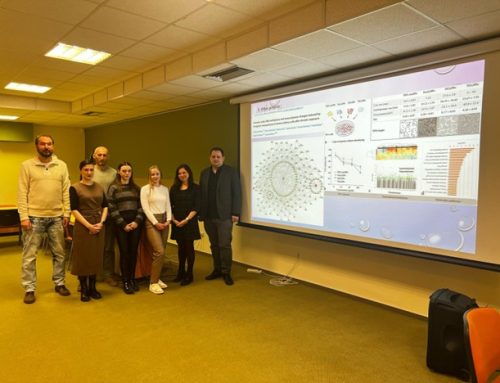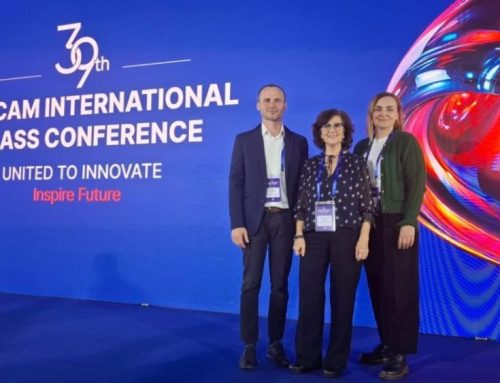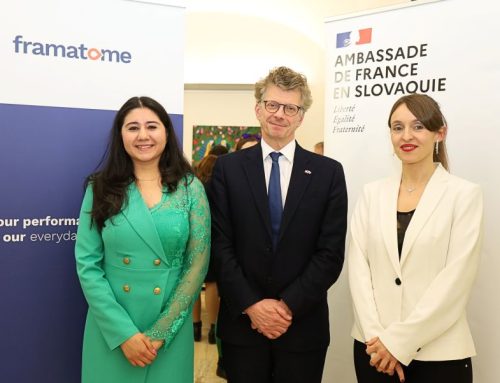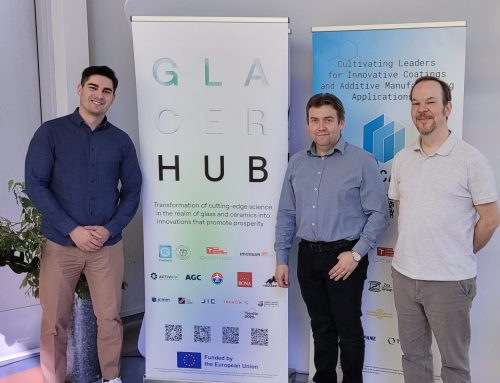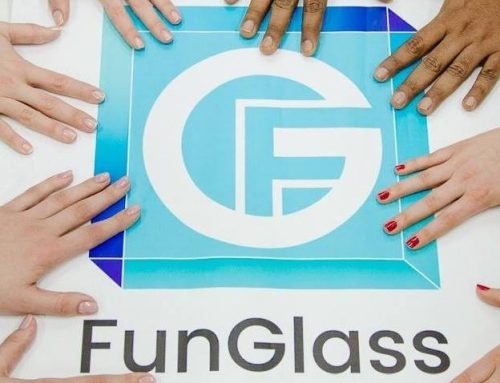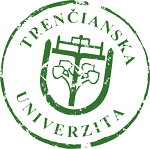FunGlass in Widesperad Success Stories Guide:
We are presenting you publication The Spreading Excellence and Widening Participation Success Stories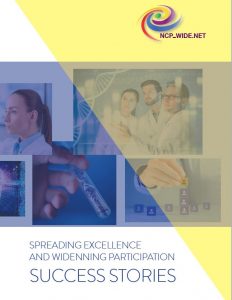 guide which was created under the NCP_WIDE.NET project. This guide includes 15 case studies on Widening projects implemented within Teaming – Phase 2, Twinning, and ERA-Chair. These projects funded by Horizon 2020 program allowed to create reasearch Centres of excellence, research teams or networks for international cooperation in various Widening countries with different advanced partners. FunGlass Centre is proud to be included into this guide which represents the selection of exciting and innovative projects (pages 44-46).
guide which was created under the NCP_WIDE.NET project. This guide includes 15 case studies on Widening projects implemented within Teaming – Phase 2, Twinning, and ERA-Chair. These projects funded by Horizon 2020 program allowed to create reasearch Centres of excellence, research teams or networks for international cooperation in various Widening countries with different advanced partners. FunGlass Centre is proud to be included into this guide which represents the selection of exciting and innovative projects (pages 44-46).
The main aim of the NCP_WIDE.NET project is to create a transnational network of National Contact Points (NCPs) for Spreading Excellence and Widening Participation under Horizon 2020 in order to facilitate transnational co-operation between NCPs, with a view to identifying and sharing good practices and raising the general standards of support to program applicants.
The Spreading Excellence and Widening Participation Success Stories guide: Success Stories GUIDE
FunGlass Success Story
Mid-way through the Horizon 2020 project funded from the Teaming call the FunGlass has already succeeded to increase Slovakia´s research and innovation capacity and is beginning to be recognized nationally and internationally as a Centre of Excellence on glass research. The main accomplishments of the project thus relate to:
– Investments into recruitment and research exchanges that provide Centre with critical mass of researchers and allow exemplary collaboration with advanced partners of the project. To this end the Centre has established four new research departments (each mentored by advanced partner) and thus tripled its personal capacity by recruiting researchers and doctoral students from around the world (14 countries representing four continents). FunGlass researchers accelerate their professional growth via training stays with advance partners in Jena, Erlangen, Padua and Madrid by being exposed to the best practices in operating research infrastructure. These stays also serve as “launching pads” for collaboration on joint research publications and proposals for competitive grants.
– Enhanced research excellence is evidenced by considerable increase of scientific publications in cited journals and conference proceedings. The scientific programme of the new Centre is regularly scrutinised not only by its Scientific Board (advanced partners) but also by International Advisory Board (accomplished scientists outside of EU) and Industrial Board (leading national as well as European glass producers). This allows Centre to identify on continuous basis cutting-edge R&I activities, with advanced partners taking lead in selected areas.
– Intensive world-class training activities for PhD students include access to 1-year internships with FunGlass partners at their home site under the supervision of world leading scientists, short-term training internships (up to 3 months) at various research institutions in EU, visiting scientists programme with on-site workshops, semi-annual off-site three-day FunGlass school with complementary skills training as well as English competence programme focusing on academic writing skills.
– Excellent financial
and resource management – implementation of the management system for advanced research facilities of the Centre and creation of a dedicated administrative unit are two factors that allowed Centre to successfully manage its transformation/ exponential personal growth and at the same time pursue new opportunities that triggered approximately €13 million of additional funding since the kick-off of the project.
The Centre currently operates with healthy operating surpluses and has already secured funding to fully finance its expanding operations in the horizon of next three years. It has also secured more than €10 million of funding for major investments into its advanced research facilities. The Centre also succeeded to integrate new staff into existing local R&D funding programmes. Starting 2021, the Centre‘ s management will actively pursue opportunities to secure new major funding. By 2023, the Centre is expected to achieve level of scientific excellence that will be matched by only a few other institutes in the Central European region. The Centre should be transformed into a competitive and qualified candidate for funding under the following schemes: Marie Sklodowska-Curie Actions (in particular Innovative Training Networks programme), European Research Council grants, and other Horizon Europe calls. In an effort to build up a top-level, self-sustainable European research institution with diversified funding portfolio the Centre focuses on following key factors: research topics (quality and prospective value of Centre´s research agenda), cooperation with industry (development of bilateral relationships – research grant partnerships, contractual research, buyer-seller relationship), and joint research efforts with advanced Teaming partners (in particular submission of joint grant proposals).
Representatives of the Center at various forums (workshops, presentations of best practices…) openly share FunGlass experience with the implementation of structural changes that have wider implications with respect to the objectives of the EU‘ s efforts to spread research excellence and widen participation across low-performing regions. In particular:
- Decision making autonomy of the Centre is combined with active engagement of advanced partners: The main decision-making and supervisory body of the Centre is Scientific Board into which each advanced partner of the project appoints one representative. Decision-making powers of the members of the Scientific Board and their active engagement have proved to be crucial factors in enabling the transfer of their know-how, in particular in the Centre´s scientific agenda, building its personal capacity (recruitment) and enhancing its doctoral programme (PhD topics and curriculum).
- Advisory boards contributions: active communication with advisory board members brings in new perspective in development of research agenda and industrial partnerships via established International Advisory Board (six leading non-EU based researchers in the field nominated by Scientific Board) and Industrial Board (representatives of major glass producers in the region).
- Brain drain reversal: Research institutions in Central and Eastern Europe have been adversely affected by a brain drain that has been triggered as a side effect of the transformation processes that began after the fall of Communism and continues to this day. Soon after the launch of the project, the regional talent resources proved to be insufficient and the FunGlass team had to learn how to face the challenges of global talent competition. To this end, it was necessary to emulate the proven talent management strategies used by the leading European research institutions (especially in terms of adapting to the influx of talent from abroad) and thus reverse the brain drain into a brain drain.
The enhanced professional and qualified personal capacities of the Center developed through the implementation of the H2020 project FunGlass helped to secure additional funding from competitive national grants in the scheme of European Regional Development Fund (ERDF) and other national scientific agencies. Over the past 3 years the Centre has submitted almost 40 projects in international and national calls out of which 18 were successful, triggering more than €13 million of additional funding.
Among the most significant success belongs 3 projects funded from the ERDF national scheme. The implementation of projects concerns the procurement of advanced research infrastructure, which should be promptly fully utilised thanks to the recently increased personnel capacity of the Centre. The amount allocated for infrastructure investments reaches €10 million while a further €2 million is allocated to finance the personal capacities and operations (consumables, travel).
From the financial perspective the FunGlass business plan was outperformed in terms of additional funding triggered from the national grants. Currently, the main challenge turns out to be the ambition to successfully implement approved projects and to fully utilize secured financial resources (in terms of research infrastructure procurement as well as recruitment of new researchers/doctoral students). This, in turn, will further enhance the FunGlass´s efforts to become an internationally recognized Centre of excellence.
The Centre strives to boost public understanding of science and technology and increased appreciation of collaboration schemes in the context of European researh landscape. To this end, the efforts of the Centre has been recently recognized at the following prime-time annual awards extensively covered by national media in Slovakia: Scientist of the Year 2019 (president of Slovakia Ms. Caputova presented prof. Galusek with the „Personality of International Cooperation“ award), Science and Technology Awards 2019 (Ministry of Education recognized FunGlass as “Scientific team of the year“), Crystal Wing 2017 (prof. Galusek has been one of the three short-listed nominees in the field of Science).


